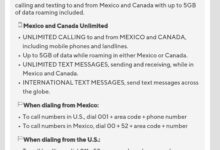Tips for Keeping Your Mobile Device Secure
In today’s digital age, our mobile devices have become indispensable tools for communication, work, and entertainment. However, with their increased functionality comes an increased risk of security breaches. Cybercriminals are constantly developing new ways to exploit vulnerabilities in our devices and steal our personal information, financial data, and other sensitive information.
Fortunately, there are a number of simple steps we can take to protect our mobile devices and keep our data safe. In this article, we will discuss some of the most important tips for keeping your mobile device secure, including setting strong passwords, being cautious about what apps you install, and using a VPN. We will also provide a table summarizing these tips for easy reference.
By following these tips, you can significantly reduce the risk of your mobile device being hacked and help to protect your personal information and privacy.
Introduction
Mobile devices have become an essential part of our lives. We use them to stay connected with friends and family, manage our finances, and access a wealth of information and entertainment. However, with great convenience comes great responsibility. Our mobile devices contain a wealth of personal and sensitive information, making them a prime target for cybercriminals.
In recent years, there has been a significant increase in the number of mobile security breaches. Cybercriminals are constantly developing new and sophisticated ways to exploit vulnerabilities in mobile devices and steal our data. This is why it is more important than ever to take steps to protect our mobile devices and keep our information safe.
The good news is that there are a number of simple and effective steps we can take to improve our mobile security. By following the tips outlined in this article, you can significantly reduce the risk of your mobile device being hacked and help to protect your personal information and privacy.
Set Strong Passwords
One of the most important things you can do to protect your mobile device is to set a strong password. A strong password should be at least 12 characters long and include a mix of upper and lower case letters, numbers, and symbols. Avoid using common words or phrases that can be easily guessed.
Why it’s important
A strong password is the first line of defense against unauthorized access to your mobile device. If your password is weak, it is more likely that a cybercriminal will be able to guess it and gain access to your device and your personal information.
How to do it
To set a strong password, follow these steps:
- Choose a password that is at least 12 characters long.
- Use a mix of upper and lower case letters, numbers, and symbols.
- Avoid using common words or phrases.
- Consider using a password manager to generate and store strong passwords.
Be Cautious About What Apps You Install
Another important tip for keeping your mobile device secure is to be cautious about what apps you install. Only install apps from trusted sources, such as the Google Play Store or the Apple App Store. Avoid downloading apps from third-party websites, as these apps may contain malware or other security risks.
Why it’s important
Malicious apps can give cybercriminals access to your personal information, financial data, and other sensitive information. They can also track your location, monitor your activities, and even control your device.
How to do it
To avoid installing malicious apps, follow these tips:
- Only install apps from trusted sources, such as the Google Play Store or the Apple App Store.
- Read the reviews of an app before you install it.
- Check the permissions that an app requests before you install it.
- Avoid installing apps that request excessive permissions.
Use a VPN
A VPN (virtual private network) is a secure tunnel between your device and the internet. When you use a VPN, all of your internet traffic is encrypted, making it much more difficult for cybercriminals to intercept and steal your data.
Why it’s important
A VPN can protect your privacy and security when you are using public Wi-Fi networks. Public Wi-Fi networks are often unsecured, making them a prime target for cybercriminals. By using a VPN, you can encrypt your traffic and protect your data from eavesdropping.
How to do it
To use a VPN, you will need to install a VPN app on your device. There are many different VPN apps available, both free and paid. Once you have installed a VPN app, you can connect to a VPN server and encrypt your traffic.
## Additional Tips for Keeping Your Mobile Device Secure
Keep your software up to date
Software updates often include security patches that fix vulnerabilities that could be exploited by cybercriminals. It is important to keep your software up to date to protect your device from the latest threats.
Be careful about what you click on
Phishing is a type of cyberattack that tricks people into clicking on malicious links or opening malicious attachments. These links and attachments can lead to malware infections or other security breaches. Be careful about what you click on, especially in emails and text messages.
Use two-factor authentication
Two-factor authentication (2FA) is a security measure that requires you to enter a second code in addition to your password when you log in to your accounts. This makes it much more difficult for cybercriminals to access your accounts, even if they have your password.
Back up your data
In the event that your mobile device is lost, stolen, or damaged, it is important to have a backup of your data. This will allow you to restore your data to a new device and continue using your apps and services.
Be aware of your surroundings
When you are using your mobile device in public places, be aware of your surroundings and be careful not to expose your device to theft or other security risks.
Use a mobile security app
There are a number of mobile security apps available that can help you protect your device from malware, viruses, and other security threats. These apps can also help you to track your device if it is lost or stolen.
Educate yourself about mobile security
The more you know about mobile security, the better you can protect your device and your data. There are a number of resources available online that can help you learn more about mobile security, such as the National Institute of Standards and Technology (NIST) and the Federal Trade Commission (FTC).
## Table: Tips for Keeping Your Mobile Device Secure
| Tip | Description |
|—|—|
| Set strong passwords | Use a password that is at least 12 characters long and includes a mix of upper and lower case letters, numbers, and symbols. |
| Be cautious about what apps you install | Only install apps from trusted sources, such as the Google Play Store or the Apple App Store. |
| Use a VPN | Encrypt your internet traffic to protect your privacy and security when using public Wi-Fi networks. |
| Keep your software up to date | Install software updates to patch security vulnerabilities. |
| Be careful about what you click on | Avoid clicking on malicious links or opening malicious attachments. |
| Use two-factor authentication | Require a second code in addition to your password when you log in to your accounts. |
| Back up your data | Create a backup of your data to protect it in the event of a lost, stolen, or damaged device. |
| Be aware of your surroundings | Be careful not to expose your device to theft or other security risks when using it in public places. |
| Use a mobile security app | Install a mobile security app to protect your device from malware, viruses, and other security threats. |
| Educate yourself about mobile security | Learn more about mobile security to better protect your device and your data. |
## FAQs
### What is the most important thing I can do to protect my mobile device?
The most important thing you can do to protect your mobile device is to set a strong password. A strong password is at least 12 characters long and includes a mix of upper and lower case letters, numbers, and symbols.
### What are some common mistakes people make when it comes to mobile security?
Some common mistakes people make when it comes to mobile security include:
- Using weak passwords
- Installing apps from untrusted sources
- Clicking on malicious links or opening malicious attachments
- Not keeping their software up to date
- Not backing up their data
### What are some of the most common mobile security threats?
Some of the most common mobile security threats include:
- Malware
- Viruses
- Phishing
- Spyware
- Ransomware
### How can I protect my mobile device from malware?
You can protect your mobile device from







